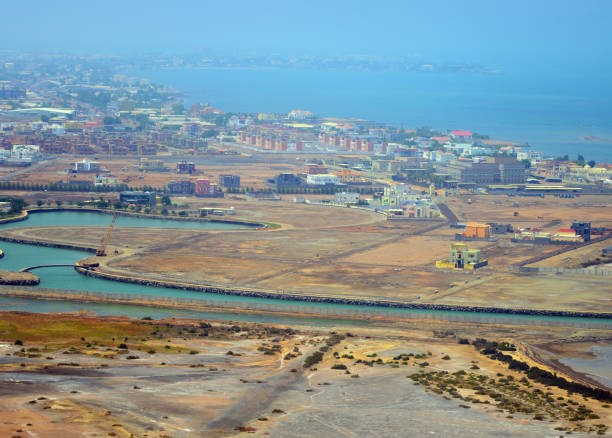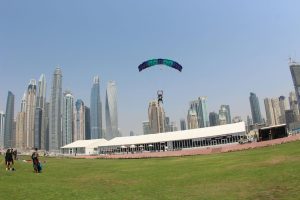The Cultural Crossroads of Djibouti: Where Africa Meets Arabia

Djibouti, a pearl of the Horn of Africa, is the place where the African colorfulness and the Arabian splendor collide. Its strategic positioning has formed an abundant cultural mosaic, where two-continental languages, traditions and cuisines meet. It is an ideal vacation spot as it attracts travelers to crowded markets, salt lakes, and hot festivals. Centuries of trade, migration and cultural amalgamation can be traced in every corner of this small country.
When it comes to Djibouti exploration is not a sightseeing experience, but a diving experience into a heritage tapestry that is still living. Tasting spiced food to observing the traditional dances, the visitors get to experience the perfect combination of African and Arabian cultures. To start your journey, it will be best to get a Djibouti visa by a reputable company such as Gokite Oman. This is a journey that you will not forget once you plan well into this Cultural Crossroads of Djibouti.
Exploring a Vibrant Blend of African and Arabian Traditions
1. A Unique Blend of Cultures
The identity of Djibouti is a century-old fusion of cultures. The Arabic, French, local Afar and Somali cultures blend and blend into a vibrant mix of music, dancing and art. Tourists have the opportunity to experience the traditional Afar performances in addition to Arabic musical expressions, which gives the families an experience worth remembering. In souks, colorful fabrics, jewels, and smelling spices are offered, which is a sensory experience into the center of the Djibouti heritage.
2. Architectural Heritage
Djibouti cityscape narrates about history and intercultural interaction. The colonial buildings are next to the traditional Afar houses, and the mosques have elaborate Arabian designs. Not only are such monuments as Place Menelik and Hamoudi Mosque picturesque, but they are the dialogue of Africa and Arabia. Sightseeing is interesting and informative since guided tours will provide families with knowledge about architectural styles and local customs.
3. Natural Wonders
The landscapes of Djibouti are a culturally significant part of the city as well. Lake Assal, which is among the saltiest lakes in the world has been the center of local trade and rituals. In the Goda Mountains, there are hiking paths where tourists get to see nomadic herders and get to know of the traditional lives. Taking a trip to these natural marvels provides families with an opportunity to bond with the surrounding as well as the people who have lived in the area their entire lives.
4. Culinary Experiences
Djibouti has a rich multicultural cuisine. Such dishes as Skoudehkaris (spiced rice with meat) and Fah-fah (hearty stew) are the blending of the African ingredients and Arabian spices. Markets of street food, local cafes and interactive cooking lessons are family friendly food ventures. Eating alongside local people presents the travelers with the customs such as tea ceremonies, which leaves a memorable cultural experience.
5. Festivals and Celebrations
Djibouti is a country with two faces, festivals are very colorful. The Independence Day is characterized by parades, music and dance performances and the religious celebrations such as Eid is characterized by communal feasts and colorful traditions. Families who come to such events are provided with a real cultural experience, including narration and participation. The festivals showcase the peaceful co-existence of African and Arabian cultures.
6. Family-Friendly Activities
Djibouti is a place that both children and adults can visit. Snorkeling at the gulf of Tadjoura, camel riding in desert scenery, and cultural workshops can provide learning experience. A lot of local guides offer family oriented tours where children are taught on wildlife, crafts and folklore. Such events help to develop curiosity and create an appreciation of the rich traditions of the region.
7. Travel Planning Made Easy
It is necessary that proper documentation is made before traveling. A Djibouti travel visa makes the process of entry easy and enables families to concentrate on their vacation. Visa applications and travel advices are also done through trusted agencies such as Gokite Oman and a stress-free start is guaranteed. Through the help of the expert, the travelers will be assured that they can plan their itinerary and enjoy the most out of their cultural experiences in the cities, mountains and coastal areas of Djibouti.
8. Embracing the Crossroads
The geographical intersection of Cultural Crossroads of Djibouti is not just simply a geographical concept, but a travel experience. Tourists observe the harmonious life of African and Arabian cultures in their everyday life, architecture and celebrations. The Djibouti travel experience can be full of discovery, learning and family bonding as one travels through the bustling city streets and the calm nature. Cooperation with reliable services such as Gokite Oman is the guarantee that all moments will be smooth and unforgettable.
Conclusion
Traveling into Djibouti is a trip into a rich cultural melting pot with Africa and Arabia coming together. Festivals, sceneries, food, and activities that are friendly to the family mean that each traveler can discover something unique. The combination of African and Arabian tradition is what makes the country a destination of no other as it is able to provide experiences that can appeal to any age.
Djibouti visa or Djibouti travel visa will guarantee a hustle free entry. Through the help of reliable partners such as Gokite Oman, families and solo travelers will be able to devote all their time to the discovery of the fascinating culture, the marvels of nature, and hospitality of people that make Djibouti a really memorable place to visit.




